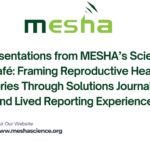Jennifer Atieno, 54, has been living with HIV for the last 12 years.
Ever since she tested positive to the virus and was enrolled for antiretroviral therapy (ART), Atieno has been taking her medication without failure.
When we, a group of journalists from the Media for Environment, Science, Health and Agriculture (MESHA) met her last week, she was in a group of other women and men who are also living with HIV in a homestead in Rarieda, Siaya County, in western Kenya.
They formed the group to encourage and advise each other to live positively with the virus. Their group known as Nyakongo Group has 12 members, who meet once every three months.
“In this group we discuss how best we can live and protect ourselves with regard to drugs we all take,” she said.
Before the group was established, Atieno got her medicine from a health facility after every three months. However, since last year when they formed the group she has been able to limit the number of hospital visits and save on transport.
“Each of us contributes Ksh10 and we give to one of us who goes to the facility and bring medicine for the 12 of us. We then agree on whose home we meet then each of us takes their drugs for the three months,” she said.
Nyakongo is one of the Community ART Groups (CAGs) under a programme supported by the Centre for Health Solutions (CHS), a Non-Governmental Organisation (NGO). The NGO has trained peer educators working under the programme.
“The groups should only visit hospitals twice a year because clients are supposed to take home drugs meant for six months,” said Millicent Kanyala, a peer educator at Madiany Sub-county Hospital in Siaya County.
“But they cannot go with the whole six months’ drugs, so they are given drugs for the first three months, then the refills are done after three months.”
CHS allows clients to voluntarily choose a community group they want to belong to. Members of each group has members who are familiar with each other to allow openness and peer interaction without fear of being stigmatised. Each group has a leader and the names and contacts of members are contained in the CAGs’ diary book.
“The diary informs me of when each group is supposed to visit the facility. So, I prepare the drugs well in advance and call their peer leader and tell them the date they will be taking drugs in their community,” said Kanyala.
CAGs are a model for ART distribution, where groups of people living with HIV rotate for clinic visits and drug refills while dispensing drugs to their peers in the community and ensuring peer support.
“The uptake is steadily good and every member wants to join community groups. So far, we have 90 community groups with a total of 822 members. In 2017 we only had 22 groups,” said George Nyakora, adherence counsellor at Madiany Sub-county Hospital.
In 2017 when Madiany Sub-county Hospital launched the programme, viral load (the amount of HIV in the blood) suppression was at 84 per cent. Mr Nyakora says this model has since helped the facility to achieve a viral load suppression of 96 per cent as at November 2021.
“Initially in 2017 the suppression cut off point was 1,000 copies/mL, currently it is 400 copies/mL. Anyone who achieves viral load suppression of below 400 copies/mL is considered to be doing well in terms of ART uptake,” said Nyakora.
He said viral load that is more than 400 copies/mL means the immunity level has dropped or is dropping and the likelihood of contracting opportunistic infections is very high.
***A MESHA (www.meshascience.org) Feature – December 2021
By Tebby Otieno







